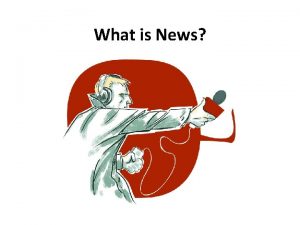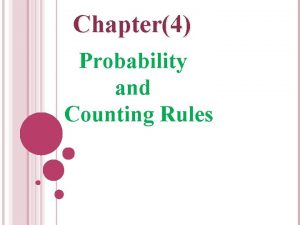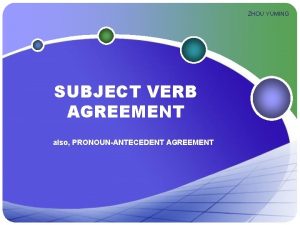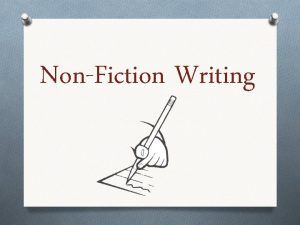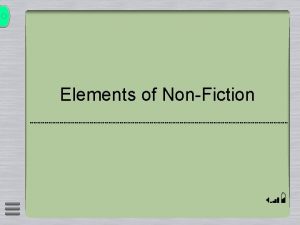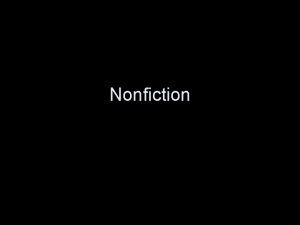In The News NonFiction Writing Nonfiction writing writing





- Slides: 5

In The News: Non-Fiction Writing Non-fiction writing: writing that is true and factual; comes from a credible source

Types of non-fiction Personal: Letters Professional: Biographies Encyclopedia/ Diaries/ Journals Thesaurus, Autobiographies Dictionary Entries Memoirs Narrative Essays Magazine Articles Interviews Newspaper Articles Textbook Articles Advertisements Catalogues and Directories Business Forms, Brochures, Pamphlets Informational Reports/ Essays Instructions and Recipes

Characteristics of Non-Fiction Characters, Plot, and Setting. -REAL people, places, things Purpose: Non-fiction can be written to inform, to entertain, or to persuade. Most NF is written to INFORM. Tone: The writer's attitude toward his or her subject important because it tells you how the author feels about a real topic; it can show you if the author may be biased

Facts, Opinion, and Bias In non-fiction writing, it's important to understand the difference between FACTS and OPINIONS, and to recognize when an author shows bias in his or her writing. Fact: A statement that can be proved to be true. Opinion: A statement of the way a person feels about something; cannot be proven to be true for everybody Bias: A strong opinion about a topic that influences the way a writer writes Question: Can you give some examples of when bias may occur in non-fiction writing?

The 5 W’s The main purpose of non-fiction writing is to inform readers. When reading non-fiction, you should look for facts that answer these questions: WHO are the people involved in this story? WHAT is happening in this story? WHERE is the story taking place? WHEN did the story occur? WHY is this information important?
